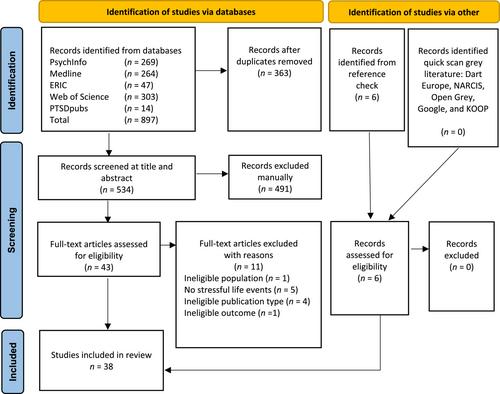Stressful life events are events that do not fulfil the A criterion of PTSD in the DSM-5(TR) but are perceived as negative by the person. There is an ongoing debate about the usefulness of the A criterion as a gate criterion for PTSD, and especially regarding which events qualify as traumatic or stressful life events. This debate is particularly important for individuals with intellectual disabilities (ID) or borderline intellectual functioning (BIF), as they seem to be more likely to experience traumatic and stressful life events than their peers without ID-BIF and appear to be more susceptible to the disruptive effects of these events. As a result, people with ID-BIF are more likely to develop mental health and behavioural problems. There is insufficient knowledge about how the relationship between stressful life events and PTSD symptoms should be interpreted, how traumatic and stressful life events are defined and distinguished in people with ID, and whether the A criterion should be broadened for individuals with ID-BIF. The aim of this scoping review was to understand stressful life events and their relationship with PTSD symptoms, other mental health and/or behavioural problems in individuals with ID-BIF.
The scoping review was conducted in accordance with the JBI methodology for scoping reviews and the Preferred Reporting Items for Systematic Reviews and Meta-Analyses Extension for Scoping Reviews (PRISMA-ScR).
Thirty-eight studies were included. Five studies focused on stressful life events and PTSD symptoms. The other studies examined associations between stressful life events and other mental health and/or behavioural problems. Most of the studies did not clearly differentiate between stressful and traumatic events according to the A criterion of PTSD in the DSM-IV (TR) or DSM-5(TR). Of the six studies in which stressful life events were specified and could be distinguished from traumatic events, one found a positive association between PTSD symptoms and stressful life events and five showed weak to strong positive associations with other mental health and/or behavioural problems.
PTSD symptoms following stressful life events in individuals with ID-BIF are underrepresented in the literature. The lack of a clear definition of stressful life events leads to a gap in the knowledge on whether and how stressful life events may lead to PTSD symptoms, other mental health and/or behavioural problems in individuals with ID-BIF. Therefore, no general conclusions or recommendations can be made regarding the appropriateness of the PTSD A criterion for individuals with ID-BIF. Further research is needed to establish the role of stressful life events in relation to PTSD symptoms and to inform the assessment and effective treatment in people with ID-BIF, as expert clinical experience studies suggest that broadening the PTSD A criterion should be considered for people with ID-BIF.


